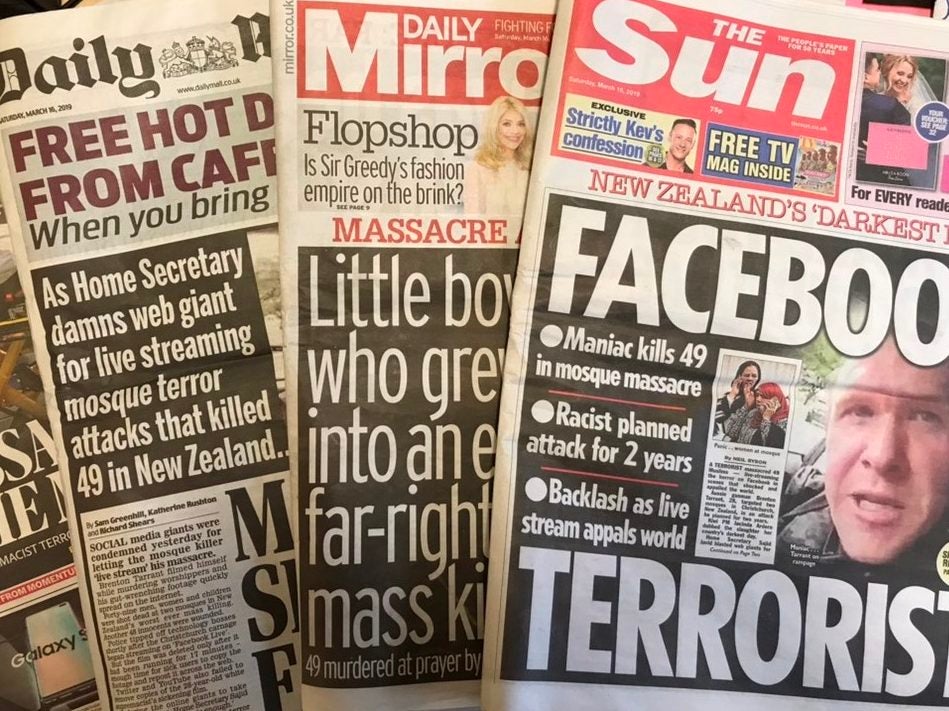
Part of the role of journalism is to hold up a mirror to society.
Sometimes when society doesn’t like what it sees in that mirror it is the journalists who come under attack.
Most journalists will experience this at some point in their careers. I can recall being a called “a vulture” by an outraged neighbour when I attended the scene of a fatal fire while working on a local paper.
This week we saw a backlash against the tabloid media in particular for its coverage of the Christchurch killings.
UK tabloids were criticised for using footage filmed by the attacker, albeit edited so as not to show the victims, and in one instance linking to his “manifesto”.
While it is always going to be tough to get the balance right, it seems to me that often the anger which should be directed against the perpetrators of these crimes is misdirected against the journalists who are trying to make sense of them and tell the world what is going on.
And while Metropolitan Police assistant commissioner Neil Basu is right to call for a dialogue with editors about how terror is covered, I’m not sure that reporting terrorism “in a way that doesn’t help terrorists” is always going to be possible.
Terrorism needs publicity in order to terrify, but journalists can’t ignore atrocities – they owe it to the victims to ensure that their stories are told.
At least at newspapers and their websites a balance is being sought. It is understandable that publicly available images and videos were used carefully to tell such an important story.
Once serious concerns were raised about their use they were taken down.
The real villains of this piece are again the tech companies who reap the benefits of being media companies, and the many billions in advertising revenue, without the costly business of editing the content they produce.
As Stanley Baldwin put in 1931 when lambasting the press barons, they exercise “power without responsibility – the prerogative of the harlot throughout the ages”.
A newspaper which published unedited live footage of a terror attack would be considered beyond the pale and probably face an advertising and sales boycott which would swiftly put it out of business.
Yet ad revenue for Facebook continues to rise inexorably into many billions globally.
We need journalism to continue to hold a mirror up to society, warts and all, so that we can understand what drove men like the Christchurch attacker and find ways to prevent this happening again.
While the tabloids make convenient scapegoats, it is the digital giants currently driving them out of business by taking their advertising revenue who we should focus our attention on.
And it is the perpetrators of these appalling acts of violence who deserve our scorn, not those who bring us the news.
Email pged@pressgazette.co.uk to point out mistakes, provide story tips or send in a letter for publication on our "Letters Page" blog

